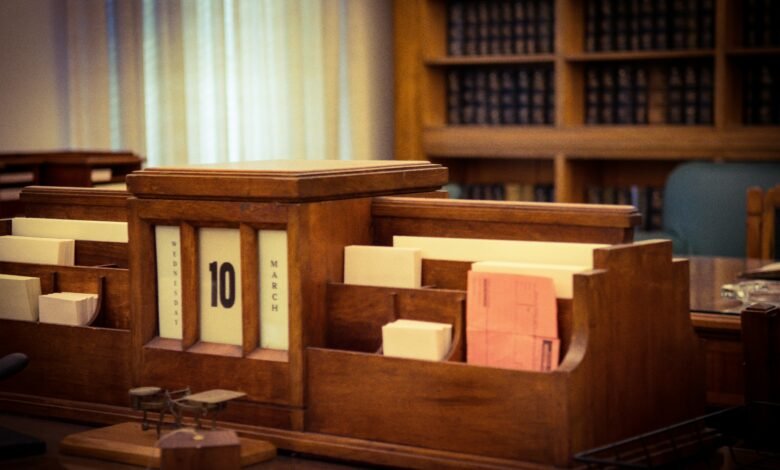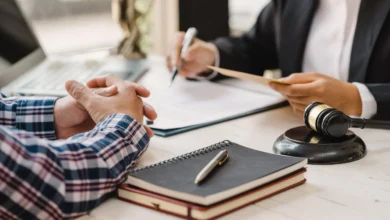Ombudsmänner: Independent Mediators for Justice and Citizens’ Rights

In a world where bureaucracy often feels overwhelming and frustrating, the role of Ombudsmänner stands as a beacon of hope for citizens seeking justice. These independent mediators act as bridges between individuals and institutions, championing rights and addressing grievances with integrity. But who exactly are these unsung heroes of advocacy? What powers do they wield to facilitate change? Join us as we explore the fascinating history, responsibilities, and impact of Ombudsmänner in our society today. Whether you’re facing issues with public services or simply curious about how these figures uphold justice, this deep dive will illuminate their vital role in enhancing citizens’ rights.
What is an Ombudsmann?
An Ombudsmann is an independent official appointed to address complaints and oversee the actions of government agencies or organizations. They serve as a crucial link between citizens and institutions, ensuring that individuals’ rights are protected.
These mediators work impartially, investigating complaints while maintaining confidentiality. Their primary mission is to promote fairness and transparency in decision-making processes.
Ombudsmänner often facilitate dialogue between parties involved in disputes. By doing so, they help resolve issues without resorting to lengthy legal battles.
In many countries, this role has evolved significantly over time. Today’s Ombudsmänner tackle diverse concerns ranging from administrative errors to human rights violations. Their commitment fosters accountability within public institutions while empowering citizens with knowledge about their rights and available recourse options.
History and Origins of the Ombudsmann Role
The concept of the ombudsmann can be traced back to Sweden in 1809. It was established as a way to ensure citizens had a voice against government actions. The term itself originates from the Swedish word “ombudsman,” meaning representative or agent.
The role quickly gained traction across Europe. Countries recognized the need for independent mediators who could address grievances against public institutions. This led to various adaptations of the model, tailored to local contexts and needs.
In some regions, ombudsmänner were tasked with overseeing specific sectors, such as health care or education. Their authority grew over time, reflecting society’s increasing demand for accountability and transparency in governance.
By the 20th century, many nations began adopting similar roles within their legal frameworks. Today, ombudsmänner play crucial parts in upholding justice and protecting citizens’ rights worldwide.
Duties and Responsibilities of an Ombudsmann
An Ombudsmann serves as a bridge between citizens and institutions. Their primary duty is to investigate complaints against government agencies or organizations. This role requires a keen understanding of policies and regulations.
They also provide guidance to individuals on how to navigate complex systems. By offering clarity, they empower citizens to advocate for their rights effectively.
Another essential responsibility is promoting fairness and transparency in public services. Ombudsmänner review practices that may be unjust or discriminatory.
Additionally, they often recommend improvements based on their findings. These suggestions can lead to significant changes within organizations, fostering accountability.
Ombudsmänner must maintain impartiality throughout the process. This neutrality ensures that all parties feel heard and respected while upholding justice in society.
How an Ombudsmann Benefits Society
An Ombudsmann plays a crucial role in promoting transparency and accountability. By acting as an independent mediator, they help bridge the gap between citizens and institutions.
They empower individuals by providing a voice to those who might otherwise feel ignored or marginalized. This fosters trust in public services and encourages civic engagement.
Moreover, Ombudsmänner identify systemic issues within organizations. Their insights can lead to improvements that benefit the community at large.
By resolving disputes efficiently, they reduce the burden on formal legal systems. This not only saves time but also resources for both individuals and government entities.
Their presence highlights the importance of upholding rights within society. When people know there’s someone watching over their interests, it cultivates a sense of security and justice among citizens.
Types of Issues an Ombudsmann Can Help With
Ombudsmänner tackle a wide range of issues, acting as vital intermediaries for the public. They often handle complaints regarding public services, ensuring fair treatment and accountability.
From healthcare grievances to educational disputes, these mediators are equipped to address various concerns. Citizens may approach them with issues related to government agencies or local authorities that seem unjust.
In addition to administrative matters, Ombudsmänner can assist with consumer rights violations. Unresolved problems between consumers and businesses are also within their jurisdiction.
Discrimination claims in employment or housing fall under their responsibility too. Individuals seeking justice against unfair practices find a trusted advocate in an ombudsmann.
Even complex cases involving civil rights can be navigated through their expertise. Their involvement ensures that citizens’ voices are heard and respected in society’s framework.
How to Access an Ombudsmann’s Services
Accessing the services of an Ombudsmann is straightforward. Most countries have dedicated websites where you can find information about your local Ombudsmann’s office.
Start by identifying the correct Ombudsmann for your issue. There may be different ones based on sectors like health, education, or public services.
Once you’ve pinpointed the right office, gather any relevant documents related to your complaint. This will help in presenting a clear case.
You can typically reach out through various channels—phone calls, emails, or online submission forms are common options. Some offices also offer walk-in consultations.
After submitting your request, expect communication from their staff regarding next steps. They will guide you through the process and inform you about what to anticipate during mediation or investigation phases.
Challenges and Criticisms of the Ombudsmann Role
The role of an Ombudsmann isn’t without its challenges. Critics often point to limitations in their authority. While they serve as mediators, they lack the power to enforce decisions. This can leave citizens feeling frustrated when resolutions don’t lead to tangible outcomes.
Another concern is accessibility. Many people are unaware that these independent mediators exist or how to reach them. This gap in knowledge can prevent individuals from seeking help for their grievances.
Furthermore, some argue about potential conflicts of interest, especially if an Ombudsmann is tied closely to government entities or institutions. Trust is crucial in this role, and any perceived bias could undermine public confidence.
Resource constraints pose a significant hurdle for many Ombudsmans’ offices. Limited staff and funding may hinder their ability to handle cases effectively and promptly, further complicating their mission of serving justice and upholding citizens’ rights.
The Future of O
The future of Ombudsmänner looks promising as society continues to evolve. With increasing complexity in governance and public services, the need for independent mediators becomes ever more relevant. These figures will likely play a pivotal role in ensuring that citizens’ voices are heard.
As technology advances, Ombudsmänner may adopt new tools for communication and case management. Digital platforms could enhance accessibility, allowing individuals to seek help from their homes without bureaucratic hurdles. This shift might encourage more people to engage with these services.
Moreover, growing awareness around human rights issues indicates an expanding scope for Ombudsmann roles globally. As more nations recognize the value of accountability within governmental structures, we can expect an increase in both trained professionals and public understanding of how they function.
Citizens increasingly demand transparency and justice from their governments; thus, the relevance of Ombudsmänner will only rise. Their ongoing commitment to mediation exemplifies a crucial balancing act between authority and citizen advocacy—a balance essential for healthy democracies moving forward.
As societies grapple with challenges like inequality or environmental concerns, the role of these mediators could become even more central in driving change and promoting justice on behalf of ordinary citizens everywhere.




